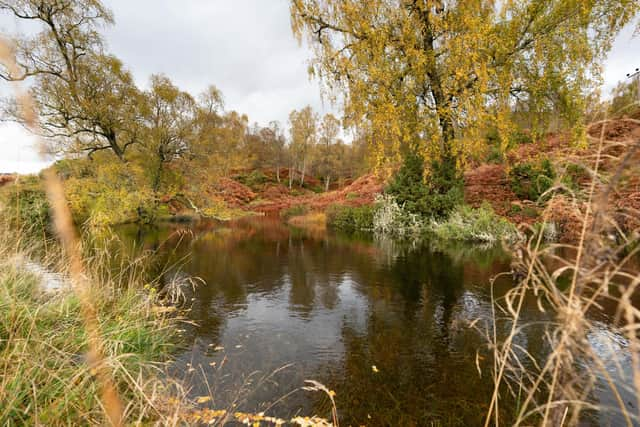UK’s first community carbon share scheme pays out for local projects in the Scottish Highlands
The money is being donated by environmental charity Trees for Life through sales of ‘carbon units’ at its Dundreggan rewilding estate in Glenmoriston, where work is ongoing to regenerate native forests, restore peatlands and boost nature.
The charity is also a founding partner for the biggest rewilding project in the UK, Affric Highlands, a community-focused initiative aiming to create a vast nature recovery area stretching across more than half a million acres from Loch Ness to Scotland’s west coast.
Advertisement
Hide AdAdvertisement
Hide AdThe pioneering carbon trading project, which sees a third of carbon sales income handed over to local groups and the remainder invested in the charity’s works, is still being trialled at Dundreggan, but Trees for Life hopes its success will set a “gold standard” and lead to a wider rollout across the Affric Highlands network.
It estimates that further sales of carbon units from the Allt Ruadh woodland could generate a further £52,000 for the community.
Each carbon unit represents a tonne of atmospheric carbon soaked up through a restored native woodland called Allt Ruadh, where Trees for Life has planted more than 250,000 trees - including Scots pine, downy birch, eared willow, hazel, aspen, bird cherry and oak.
The units are being sold to organisations which are already taking action to reduce their carbon footprints to as close to zero as possible but which want to offset unavoidable emissions as they work towards this goal.


The two groups benefitting from the first round of sales are West Glenmoriston Community Company and Glenmoriston Improvement Group, which work to enhance the area for local people and visitors.
“This is a fantastic example of how responsible carbon offsetting can bring much-needed investment into rural areas while helping reduce carbon emissions and restoring nature,” said Tim Perkins, from West Glenmoriston Community Company.
“It shows how landowners can help create, and benefit from, enriched landscapes while supporting communities.”
By only selling carbon units to organisations which are working to reduce their fossil fuel emissions as much as possible, the pilot community carbon share is designed to avoid greenwashing by companies claiming to offset greenhouse gas emissions while failing to decarbonise.
Advertisement
Hide AdAdvertisement
Hide AdThe charity has been selling the units for £28 each, with £10 from each sale since last summer going into the community grants.
The price has now increased to £40 a unit, with the community share just over £13.
The carbon units have been accredited by the UK Woodland Carbon Code, developed by Scottish Forestry, which independently calculates and verifies how much carbon woodland habitats can soak up over a given time period.
Steve Micklewright, chief executive of Trees for Life, said: “Creating rewilding benefits for local communities is essential if we are to seriously tackle the climate and nature emergencies.
“This pioneering community carbon initiative is one way this can happen, alongside creating new opportunities in traditional skills, slow tourism and local food production.
“We want to show that nature-based solutions to extract carbon from the atmosphere can also boost nature recovery and help local communities thrive – and how ethical carbon offsetting can be combined with serious action to decarbonise and leave fossil fuels in the ground.”
A message from the Editor:
Thank you for reading this article. We’re more reliant on your support than ever as the shift in consumer habits brought about by coronavirus impacts our advertisers.
If you haven’t already, please consider supporting our trusted, fact-checked journalism by taking out a digital subscription.
Comments
Want to join the conversation? Please or to comment on this article.
